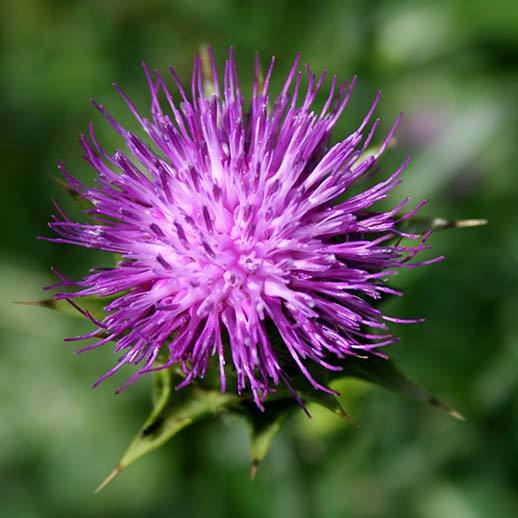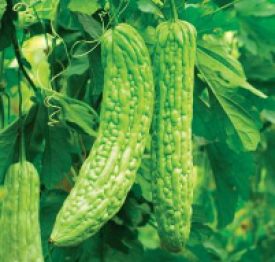Diabetes is a life-long condition that affects the blood sugar and insulin levels in the body, and the number of people suffering from it is soaring. According to data from the World Health Organization, the global prevalence of diabetes among adults over 18 years old has risen from 4.7% in 1980 to 8.5% in 2014, and the number of people with diabetes has risen from 108 million in 1980 to 422 million in 2014! The good thing is that there are certain herbs and supplements that, combined with conventional treatment, can provide relief from diabetes symptoms, and reduce the risk of complications.
Milk Thistle

People have been using milk thistle for centuries for treating various ailments, and especially as a tonic for the liver. Silymarin, the extract from milk thistle, has received a lot of attention from scientists because it’s a compound with antioxidant and anti-inflammatory properties, which make milk thistle useful for people with diabetes!
Bitter Melon

Momordica charantia, or bitter melon, is a medicinal fruit, which practitioners of traditional Chinese and Indian medicine have used for centuries. There’s also ample evidence that bitter melon can help with symptoms of diabetes, in fact, one review has noted that people have used many parts of the plant to treat diabetes.
Research has also shown that taking bitter melon in the following forms can lead to a reduction in blood sugar levels in some people – seeds, blended vegetable pulp, juice and supplements. Eating or drinking bitter melon can be an acquired taste, but taking supplements may make it more palatable.
Cinnamon
Cinnamon is a fragrant spice that comes from the bark of a tree, and for centuries many countries have traded spices like cinnamon in large quantities. It’s also a very popular ingredient in sweets, baked goods and other dishes, as it has a taste that can add sweetness without any additional sugar.
A 2012 study found evidence from studies involving humans that cinnamon may improve levels of glucose, insulin and insulin sensitivity, lipids (or fats in the blood), antioxidant status, blood pressure, lean body mass and digestion.
In 2013, another study found that cinnamon might lead to lower fasting blood sugar levels, less total cholesterol and “bad” low density lipoprotein (LDL) cholesterol, higher levels of “good’ high-density lipoprotein (HDL) cholesterol and a reduction in triglycerides (or fat in the blood).
People can take cinnamon in a variety of cooked dishes and baked goods, or in teas, and as a supplement. However, like any other supplement or herbal concoction, anyone who’s thinking of using cinnamon supplements should first speak to their doctor!
Aloe Vera
Aloe vera is a common plant with a wide array of uses. For example, it can be used for skin care, and it can also be used for slowing down the progress of type-2 diabetes. A 2013 study has looked at the use of aloe vera in rats. The findings suggest that aloe vera might help protect and repair beta cells in the pancreas that produce insulin, which researchers believed was due to aloe vera’s antioxidant effects!








